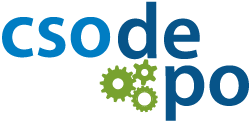Home Support Program “Reducing Inequalities Through Intersectional Practice”
About the program
Intersectional practice is a central pillar of the Robert Bosch Stiftung strategy for inequalities, a new topic that the Stiftung is exploring over the coming three years. To effectively tackle inequalities, it is vital to understand and transform the underlying systems and processes that define and shape inequalities of all kinds.
Different social identities and locations, such as gender, race, ethnicity, class, age, disability, caste, sexuality, immigrant status, and geography, many times interplay and produce distinct experiences of discrimination. Intersectional approaches draw attention to these forms of interconnected oppression and allow for analyzing and addressing the root causes of inequalities. While intersectionality has inspired a great deal of critical analysis and action, these efforts have yet to be fully recognized and integrated on a wider scale. These may not use the term intersectionality in their work, however, they are actively engaging with its core principles.
This is the driving impetus behind the objectives of the Support Program, which are to uncover and promote good practice with regard to intersectional work; foster connections and support actors addressing inequality with an intersectional approach, and provide a platform for exchange and learning among practitioners with the aim of informing future programmatic work.
More information can be found here.
